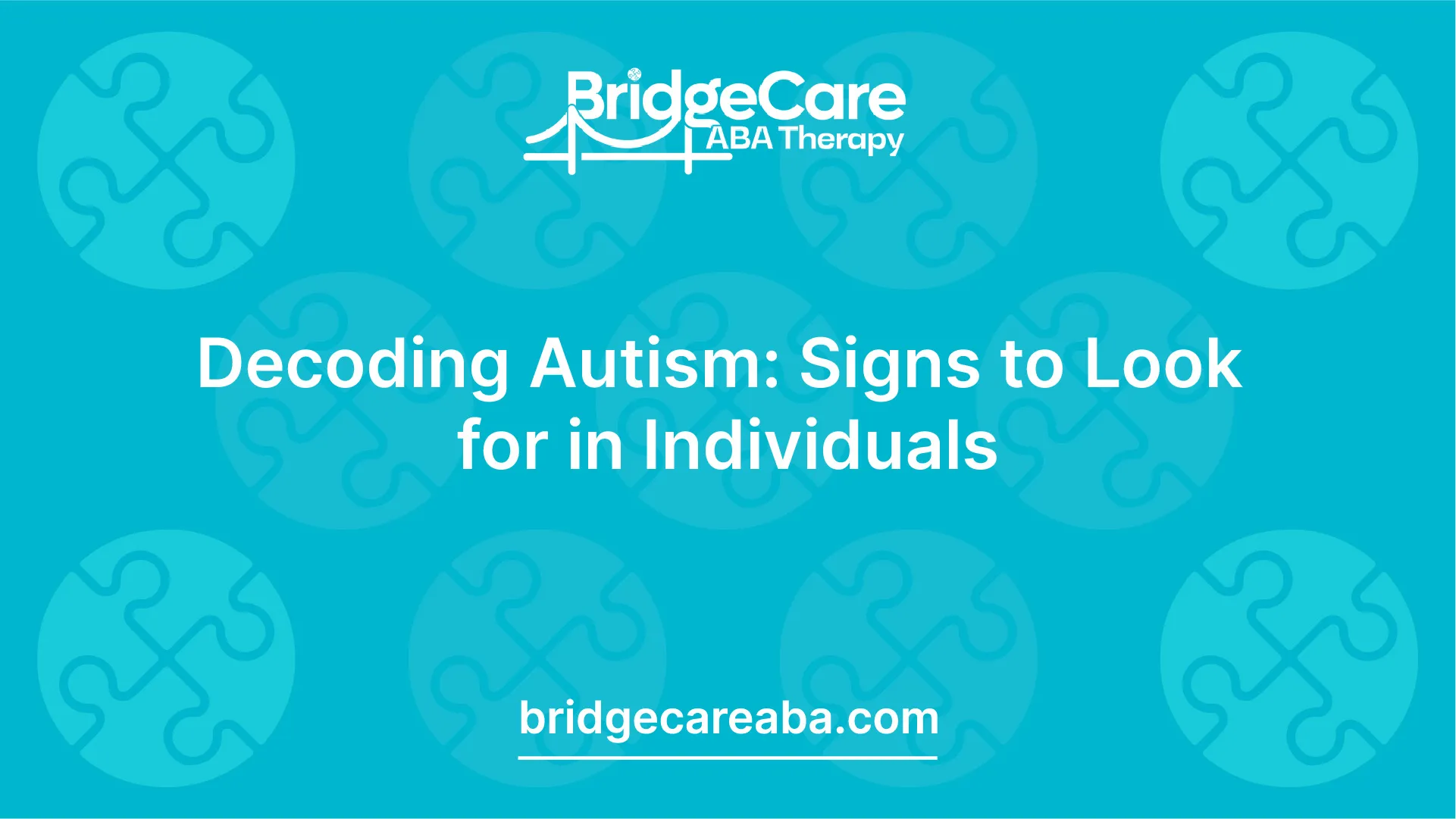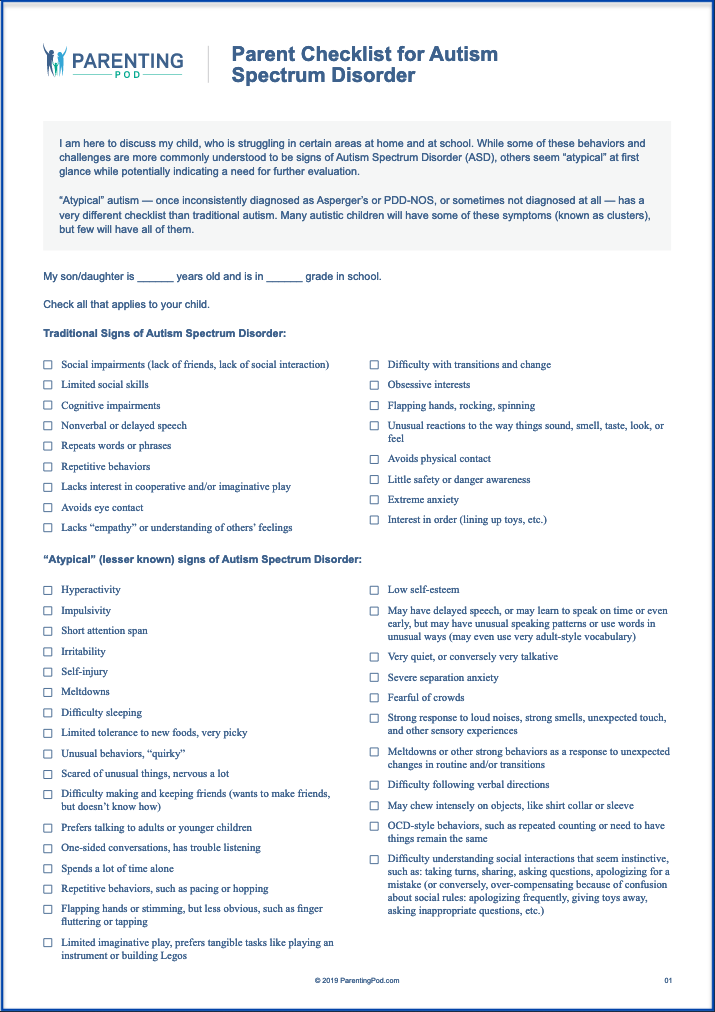Key Symptoms And Signs to Recognize in Individuals With Behavioral Autism
When you encounter somebody with behavior autism, identifying vital symptoms and signs is essential. You might discover difficulties in social communications and interaction, along with a solid requirement for regimens. In addition, sensory level of sensitivities can bring about frustrating experiences. Recognizing these traits can enhance your assistance and treatments, yet there's more to uncover concerning exactly how these habits show up in day-to-day circumstances. Let's discover what these signs really resemble.
Challenges in Social Communications
When you connect with a person on the autism spectrum, you might observe they have problem with social cues and interaction. These obstacles can make social communications really feel frustrating for them. You might see them avoiding eye call or standing as well close or as well far during conversations, which can create misunderstandings. They may not notice body movement or face expressions, making it harder for them to evaluate just how others are really feeling.
Furthermore, you might discover that they like regimens and acquainted setups, which can limit their desire to participate in brand-new social situations. When they do involve, they may speak about their passions in excellent detail without noticing if you're interested. This can lead to prejudiced discussions that leave you really feeling disconnected. Recognizing these challenges can assist you approach interactions with compassion and patience, fostering a much more comfy environment for both of you.
Trouble With Verbal and Non-Verbal Interaction

Non-verbal interaction can be even more difficult. You might see a lack of eye call or restricted use gestures, which can make communications feel awkward. Faces may not constantly align with the conversation, resulting in complication regarding their feelings. Acknowledging these indicators is crucial, as it assists you far better assistance and involve with individuals on the autism range. By comprehending their communication challenges, you can promote much more meaningful connections and give a much more encouraging atmosphere.
Repeated Behaviors and Routines
Interaction difficulties commonly come with other indications of autism, such as repeated behaviors and a strong preference for regimens. You may see that individuals with autism typically participate in particular, repetitive activities, like hand-flapping, rocking, or duplicating expressions. These actions can give convenience and a feeling of control in an usually frustrating world.
Routines are similarly essential; lots of people grow when they adhere to an organized routine. You may locate that adjustments to these regimens can bring about substantial distress. As an example, if they have an everyday ritual of eating breakfast at a particular time or adhering to a particular route to school, any type of disturbance can create anxiety.
Recognizing these patterns assists you recognize their behavior and give support. By suiting their requirement for routine and allowing repeated activities, you can produce a more comfy atmosphere that eases their challenges.
Sensory Level Of Sensitivities

Typical Sensory Triggers
Sensory sensitivities can significantly impact every day life for people with autism, as specific stimulations typically trigger frustrating responses. Usual sensory triggers include loud sounds, intense lights, and solid smells. You may notice that unexpected audios, like sirens or alarm systems, trigger anxiousness or distress. Fluorescent lights in shops can feel severe and awkward. Textures can likewise play a substantial duty; harsh textiles or certain food structures might be excruciating for you. Furthermore, crowded areas can bewilder your detects, making it hard to focus or loosen up. Recognizing click for more info these triggers can help you handle your environment much better. By recognizing what impacts you, you can take steps to reduce discomfort and enhance your everyday experiences.
Behavior Feedbacks Clarified
Understanding your behavior feedbacks to sensory level of sensitivities is necessary, as they commonly expose exactly how you communicate with the world. You could observe that particular noises, lights, or structures overwhelm you, leading to stress and anxiety or discomfort. When confronted with these stimulations, you may withdraw, cover your ears, or perhaps react boldy. These actions aren't just quirks; they're your method of handling overstimulation. You may also locate yourself looking for particular sensory experiences, like deep pressure or silent settings, to help ground on your own. Acknowledging these patterns helps you recognize your requirements better and can lead exactly how you communicate them to others. By recognizing your sensory sensitivities, you can function towards developing a setting that feels more comfy and manageable for you.
Coping Methods Introduction
Acknowledging your sensory level of sensitivities is just the first action; now it's time to explore coping techniques that can aid you manage those experiences efficiently. Begin by producing a sensory toolkit customized to your needs. Developing a structured regimen can additionally give predictability, lowering anxiousness around sensory overload.
Limited Passions and Focus
While several people establish a vast array of interests, those with autism typically demonstrate limited passions and an intense concentrate on certain topics. You might see that somebody with autism can spend hours diving right into their preferred subject, whether it's a certain type of train, a particular film, or a clinical idea. This intense emphasis isn't just a hobby; it can come to be a central component of their identity and social interactions.
You might find that conversations rotate around these interests, and they may have a hard time to involve in wider subjects. By understanding and recognizing these restricted interests, you can foster an encouraging environment where they feel valued and recognized, allowing for more significant connections pop over to this site and interactions.
Psychological Law Difficulties
Individuals with autism typically face challenges in emotional regulation, which can be affected by their extreme concentrate on certain passions. You could observe that when a person is deeply taken part in a preferred task, they can experience strong emotions, whether excitement or aggravation. When things do not go as intended., this intensity in some cases makes it difficult for them to shift equipments or handle their feelings - Aba Therapist.

Irregularity in Developing Landmarks
When it comes to developmental turning points, you'll discover that people with autism frequently reveal a vast array of irregularity. You could see a youngster stand out in language skills but struggle with social interactions.
It's important to acknowledge that each person's trip is unique. Some may develop intricate abilities early, only to face challenges later on. Others could take longer to achieve basic turning points but then thrive in specific locations. Observing these patterns can assist you comprehend their staminas and needs much better.
Often Asked Concerns
How Is Autism Detected in Kid and Adults?
To detect autism in adults and youngsters, experts assess actions, interaction skills, and social interactions. If a private satisfies the standards for autism spectrum disorder., they usually utilize standard tests, meetings, and observations to establish.
Are There Various Sorts Of Autism Range Disorders?
Yes, there are different types of autism range conditions, consisting of Asperger's syndrome and prevalent developmental disorder-not or else specified. Each kind differs in seriousness and attributes, so comprehending these differences can help you much better support individuals with autism.
What Therapies Are Efficient for People With Autism?
When considering efficient treatments for individuals with autism, you'll find choices like Applied Behavior Analysis, speech treatment, and job-related therapy. Each technique can assist improve communication, social abilities, and day-to-day functioning customized to specific demands.
Can People With Autism Lead Independent Lives?
Yes, people with autism can lead independent lives. With the best assistance, skills training, and sources, you can help them establish self-sufficiency, take care of daily jobs, and flourish in different settings, fostering their independence.
Exactly How Can Family Members Support Liked Ones With Autism?
You can sustain your enjoyed ones with autism by creating a structured environment, motivating their passions, exercising patience, fostering communication, and promoting social abilities. Commemorate their success, regardless of how small, and develop a supportive community.
Although numerous individuals on the autism spectrum can make use of and understand language, they usually encounter substantial obstacles with both non-verbal and spoken communication. Recognizing these signs is important, as it helps useful link you better support and involve with people on the autism range. You may discover that individuals with autism often engage in details, repetitive activities, like hand-flapping, shaking, or duplicating expressions.Sensory level of sensitivities can considerably impact day-to-day life for people with autism, as specific stimuli typically cause frustrating reactions.When it comes to developmental landmarks, you'll see that people with autism often reveal a vast variety of variability.